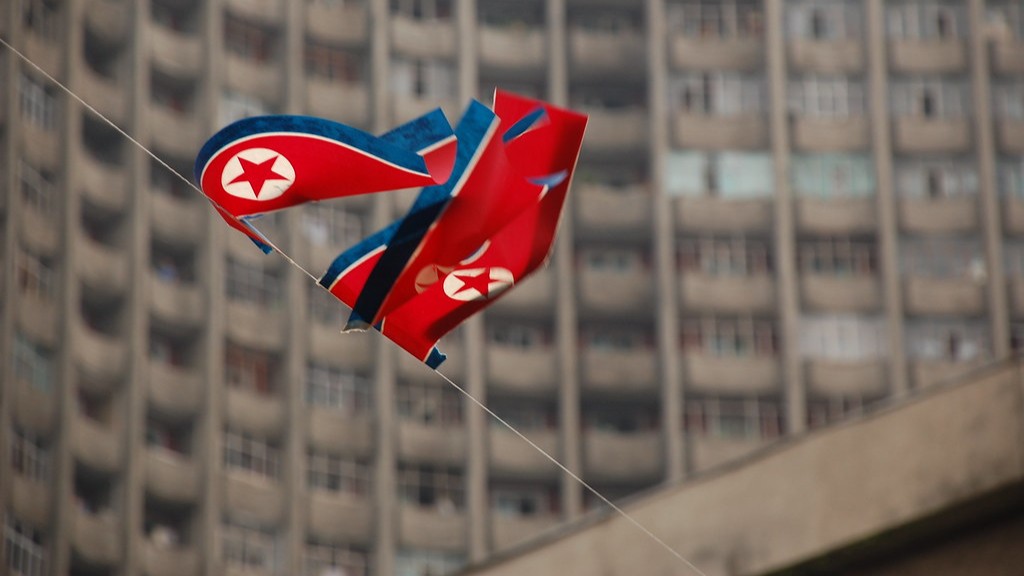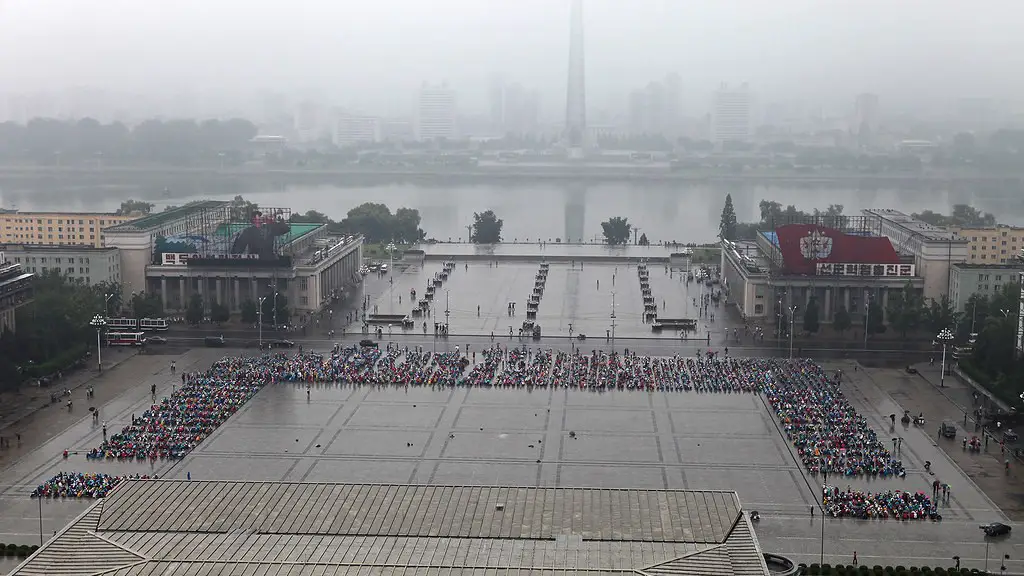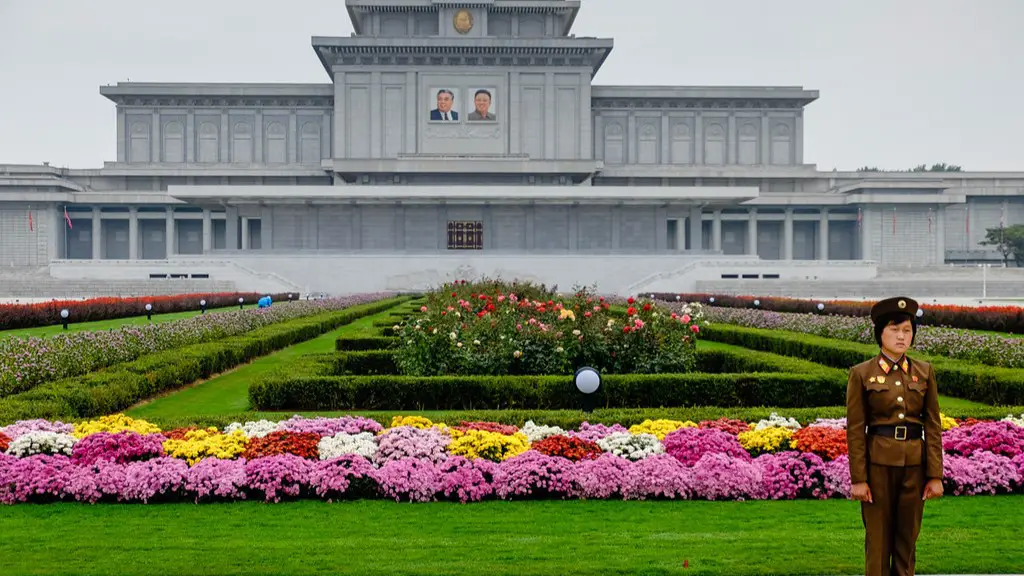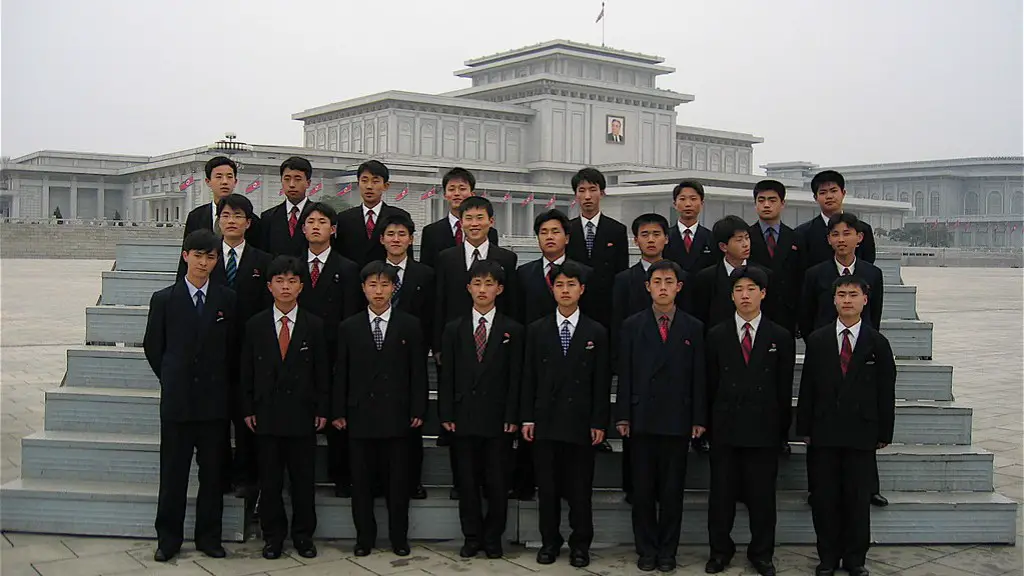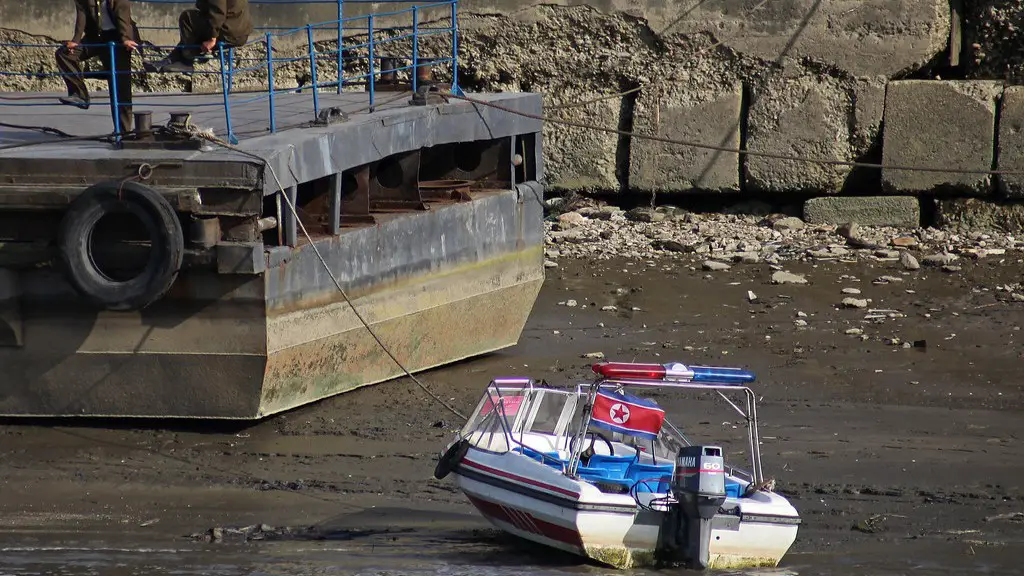The international spotlight has been on North Korea for some time now, with its nuclear ambitions, human rights abuses, and cyber-attacks continually making headlines. But one aspect of the country that is often overlooked is its coal reserves. The question of whether North Korea has coal and how it is mined, used and sold is worth exploring, as understanding it could shed light on the countries political ambitions and help us to better understand the situation Korea finds itself in.
Officially, North Korea is known to have considerable coal reserves; some independent assessments suggest it has the 10th largest reserves in the world, with some estimates putting it at more than 200 billion metric tons. The vast majority of those reserves consist of bituminous coal – a type of coal suitable for use in electricity generation. North Korea is thought to be the world’s 11th largest coal producer, producing around 19 million metric tons in 2018.
As coal is North Korea’s most abundant natural resource, it is also one of its primary sources of income. While its main export markets are China and India, North Korea also trades with Russia and other nearby countries. In 2017, North Korean coal exports were estimated at around 3.2 billion dollars, representing around 3.2 percent of the country’s GDP.
While the coal industry provides North Korea with a valuable source of income, it also poses environmental problems for the country. Despite the lack of concrete data due to the secretive nature of the regime, there is strong evidence that the coal industry suffers from lax regulations, with little to no environmental standards in place.
Experts have noted a variety of health and environmental problems linked to North Korea’s coal industry, including excessive deforestation, acid rain, air and water pollution, landslides and soil erosion. There has also been research which suggests that North Korea’s coal industry is particularly underdeveloped and inefficient, with much of the coal being exported still in its raw form.
The question of what North Korea is doing with its coal reserves is a complicated one. It is clear that coal is a key economic resource for North Korea, but it is also clear that its coal industry suffers from a lack of investment, environmental regulations and development. Analysts suggest that despite its reliance on coal for economic reasons, the nature of the North Korean regime means that it is unlikely to expend much effort into improving the industry.
At the same time, it is also unlikely that North Korea will choose to end its reliance on coal in the near future. Coal remains its most abundant and profitable natural resource, and as long as it can be exported it will remain a crucial source of income. Until last year, North Korea had virtually no other large-scale natural resource exports, such as oil.
But despite the country’s reliance on coal, there are signs that it is beginning to move away from the resource. Earlier this year North Korea announced plans to build new renewable energy plants, including solar, wind and hydroelectric. While it is unclear how much these plants will actually produce, the announcement marked a major shift in North Korea’s energy policy, and could signal a move towards renewable energy sources in the future.
International Sanctions Impacting North Korea’s coal industry
International sanctions have also had a significant impact on North Korea’s coal industry. While sanctions have been relaxed in certain areas, such as the export of coal, much of the international trade of this resource is restricted by sanctions. This has made it harder (and more expensive) for North Korea to sell its coal, and has led to the development of black markets and smuggling to get around the restrictions.
In recent years, there have been reports of North Korean coal being smuggled into other countries, including China and Russia, in order to evade sanctions. This has had an impact on North Korea’s economy, as it is unable to tap into these markets as much as it used to. It also has implications for international security, as North Korea continues to use the money earned from coal sales to fund its nuclear program.
The situation surrounding North Korea’s coal industry is a complex one, and it is clear there is much more to be done to understand the true extent of the industry, and how it could affect the political and economic landscape of the region. What is certain, though, is that North Korea’s extensive coal reserves continue to provide an important source of income for the regime, and will continue to do so until the country is able to diversify its economy.
North Korean Mining Methods and Practices
North Koreans utilize a variety of mining methods and practices, including open-pit mining, underground mining, and coal slurry mining. Additionally, many mining faces are reached by cableways, which allow for mechanization of mining operations. North Korea has three main mining areas – the Musan iron mine, Youngsun iron mine, and Seongjin coal mine. There are also several smaller mining sites scattered throughout the country.
North Korea’s mining practices are generally outdated and dangerous. Poor health and safety practices mean that there is a high risk of accidents for workers in the coal mines, and there is also a lack of adequate ventilation and protection from toxic fumes. Additionally, the country’s infrastructure is in need of urgent investment and repair, which means it is often difficult to get coal out of the country.
In spite of its outdated mining methods, North Korea’s coal industry is of great importance to the country’s economy, as it provides much-needed foreign currency through its exports. However, due to its reliance on antiquated mining practices and the sanctions imposed by the international community, North Korea’s coal exports remain limited.
The Impact of Coal in North Korean Politics
Coal is an important resource in North Korean politics, as it is a major source of hard currency for the regime. The money earned from coal sales is thought to be used to finance the development of weapons of mass destruction, as well as to fund the activities of the ruling elites. This makes the coal industry a key target of economic sanctions.
Coal is also an important bargaining chip for North Korea in international negotiations. By leveraging its coal reserves, North Korea can use its vast coal wealth as a bargaining tool to secure economic and political concessions from other countries. It is also important to note that coal is a major source of influence for North Korea in countries like China, which relies heavily on coal for its own energy needs.
The role of coal in North Korean politics is a complex one, and its importance will only continue to grow as long as the regime remains in power. While coal is a crucial source of income for the country, it is also a key source of political power, which the regime continues to use to its advantage.
The Future of North Korean Coal
Despite the current constraints on its coal industry, North Korea is likely to continue to rely on coal in the foreseeable future. The cost of switching to other energy sources is steep, and despite recent advancements in renewable energy, the country’s energy grid is still heavily dependent on coal. This means that coal is likely to remain an important source of income for the regime for the time being.
However, it is uncertain what the long-term future for North Korea’s coal industry holds. If the international community is able to reach an agreement with the regime, and sanctions are lifted, it is possible that North Korea could be able to expand the coal industry, and secure more lucrative export deals. It is also possible that the country could invest in new technologies that would make coal extraction more efficient and environmentally-friendly.
Ultimately, the future of North Korea’s coal industry will depend on the outcome of negotiations between the international community and the North Korean regime. The current sanctions and lack of investment mean that coal exports remain limited, but if a political solution is reached, it is possible that North Korea’s coal industry could be revitalized. This would provide North Korea with a valuable source of income, and perhaps even lead to the development of the country’s renewable energy sector.
The Human Cost of North Korea’s Coal Mines
The human cost of North Korea’s coal industry is often overlooked in discussions of the country’s coal reserves. Despite the lack of data due to the secretive nature of the regime, it is clear from reports from defectors and other sources that the working conditions in North Korea’s coal mines are dire, and workers suffer from long hours, low pay, and dangerous working conditions.
Along with the health and safety risks, there is also evidence of political repression and human rights abuses in the mines. Workers are forced to work long hours, often in extreme temperatures, and any form of dissent or complaint is swiftly suppressed by the regime. Workers are often denied basic rights, such as the right to form a union or speak out against the conditions in the mines.
The human cost of North Korea’s coal industry is a tragedy that is often overlooked. While there is no easy solution to the problem, it is important to recognize the shocking and egregious human rights abuses taking place in the mines, and to stand in solidarity with the workers affected.
International Response and Solutions
The international community has responded to the plight of North Korea’s coal miners in a variety of ways. The UN has condemned the regime’s human rights abuses, and has urged North Korea to take action to improve the working conditions in its coal mines. International human rights organizations have also raised awareness of the abuses and have called on the international community to intervene.
In spite of this, there is still a lack of concrete solutions to the problem. International sanctions have limited North Korea’s access to foreign capital, and this has had an effect on the ability of the regime to make much-needed improvements to its coal mines. The international community also needs to focus on long-term solutions, such as providing aid and expertise to improve working conditions in the mines.
In addition to this, the international community needs to find ways to pressure the North Korean regime to take action. This could include the imposition of targeted sanctions, or the use of public shaming to highlight the plight of the coal miners. In either case, it is clear that the current situation is untenable and that the international community needs to take steps to ensure the safety and rights of North Korea’s coal miners.
